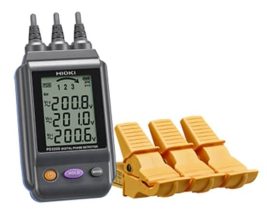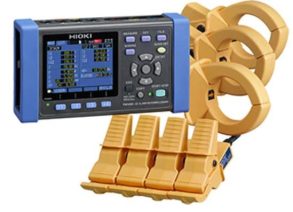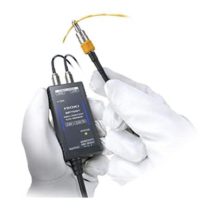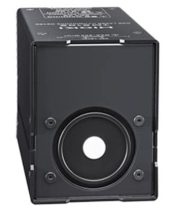Electrical Safety /
Ground Bond Testers
Ground bond testers are specialized electrical testing instruments used to verify the quality and safety of electrical ground connections in various applications, including manufacturing, production, and maintenance environments. These testers ensure that electrical equipment is properly grounded, preventing hazards to operators and damage to equipment. The purpose of a ground bond test is to measure the resistance of an electrical ground connection. The resistance should be low to safely conduct electrical current to the ground. A typical ground bond tester consists of a power supply, a current meter, and test leads with clamps or probes for attaching to the ground connection being tested. To perform a ground bond test, connect the test leads to the ground connection and apply a test current. The instrument measures the voltage drop across the connection and calculates the resistance using Ohm's law. If the measured resistance is within an acceptable range, the connection is considered safe and functional. Ground bond testers are critical tools for ensuring the safety and reliability of electrical equipment. They also help diagnose and troubleshoot electrical problems, ensure compliance with regulatory standards, and meet industry requirements. Different ground bond testers are available on the market, from handheld devices to advanced automated systems. Some testers can perform other electrical tests, such as insulation resistance and continuity tests. The selection of a ground bond tester depends on the specific needs, requirements, budget, and available resources for the application.
Ground bond testers are specialized electrical testing instruments used to verify the quality and safety of electrical ground connections in various applications, including manufacturing, production, and maintenance environments. These testers…
...ensure that electrical equipment is properly grounded, preventing hazards to operators and damage to equipment.
The purpose of a ground bond test is to measure the resistance of an electrical ground connection. The resistance should be low to safely conduct electrical current to the ground. A typical ground bond tester consists of a power supply, a current meter, and test leads with clamps or probes for attaching to the ground connection being tested.
To perform a ground bond test, connect the test leads to the ground connection and apply a test current. The instrument measures the voltage drop across the connection and calculates the resistance using Ohm’s law. If the measured resistance is within an acceptable range, the connection is considered safe and functional.
Ground bond testers are critical tools for ensuring the safety and reliability of electrical equipment. They also help diagnose and troubleshoot electrical problems, ensure compliance with regulatory standards, and meet industry requirements.
Different ground bond testers are available on the market, from handheld devices to advanced automated systems. Some testers can perform other electrical tests, such as insulation resistance and continuity tests. The selection of a ground bond tester depends on the specific needs, requirements, budget, and available resources for the application.
-
Hioki’s non-contact voltage detection and measurement technology places efficiency and safety as priority considerations with the goal of...FIND OUT MORE
-
Hioki Clamp On Power Meters are multi-channel power measuring devices utilizing clamp sensor input to accurately and safely measure power on...FIND OUT MORE
-
The SP7001 and SP7002 are CAN and CAN FD signal sensors that use non-contact technology to accurately capture CAN bus signals necessary for vehicle...FIND OUT MORE
-
The RGB LASER METER TM6102 evaluates the white balance of displays that use lasers by measuring centroid wavelength and optical power, which are key...FIND OUT MORE




